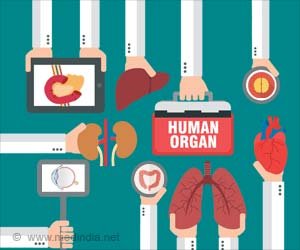Educating Police About Their Role in Deceased Organ Donation

Brain death following an RTA is treated as a medico-legal case (MLC). In such a case, police are responsible for investigating the death and for providing an accurate determination of the cause and manner of death.
The police conduct a preliminary investigation to ascertain the cause of death (inquest). Following this, the investigating officer prepares the inquest report, determines if a postmortem is required, and places a request to the doctors to conduct the postmortem if required.
Organ retrieval requires the authorization of a forensic expert who requires a go-ahead from the police for retrieving certain organs such as the kidneys, liver, lungs, heart, and any other organ that may be used for transplantation and is not required to understand the cause of death.
Advertisement
Lack of awareness on the part of the police often leads to delays causing the patient to crash. The donation rate of a city or region can be influenced positively by a good working relationship between hospitals that generate multi-organ donors and their local forensics and investigating officers.
It is here where the police need to ensure a seamless process without allowing for the possibility of relatives withdrawing their consent for organ donation owing to delays.
Police should also be aware of donor cards as they serve as an opportunity to initiate talks with family members. Identifying a deceased person’s donor card will help in initiating a discussion on organ donation on behalf of the deceased with their bereaved families.
Training on Police in Medico-Legal Formalities in Deceased Organ Donation
In this workshop organized by MOHAN (Multi Organ Harvesting Aid Network) Foundation (a 25-year-old NGO that has been working to promote deceased organ donation in India), and Jawaharlal Nehru Institute of Medical Science in Manipur, around 100 police per sonnet participated.
“Multiple stakeholders have to come together to make organ donation a reality in Manipur – the state government, the health department, the public, hospitals (public and private), media, and of course the police are critical stakeholders”, said MOHAN Foundation executive director Pallavi Kumar at the program.
Training the police is an integral part of their mandate along with creating public awareness, training medical and paramedical staff, developing systems in hospitals, and counseling grieving families to encourage them to think about donating their loved one’s organs to save the lives of others requiring transplants.
The Foundation continued that there are over 5 lakh people in India who are suffering from end-stage organ failure, and they can live a normal life if they receive an organ transplant on time. However, less than 10 percent receive timely help due to an acute shortage of organs in our country.
Organizers also assured the Foundation of the complete support of the police in cases of organ donation in the future and stressed the importance of organ donation to save multiple lives.
Awareness levels on organ donation in the Northeast are extremely low as compared to other parts of the country and a lot has to be done to change this scenario.
Source: Medindia
Source link
#Educating #Police #Role #Deceased #Organ #Donation



